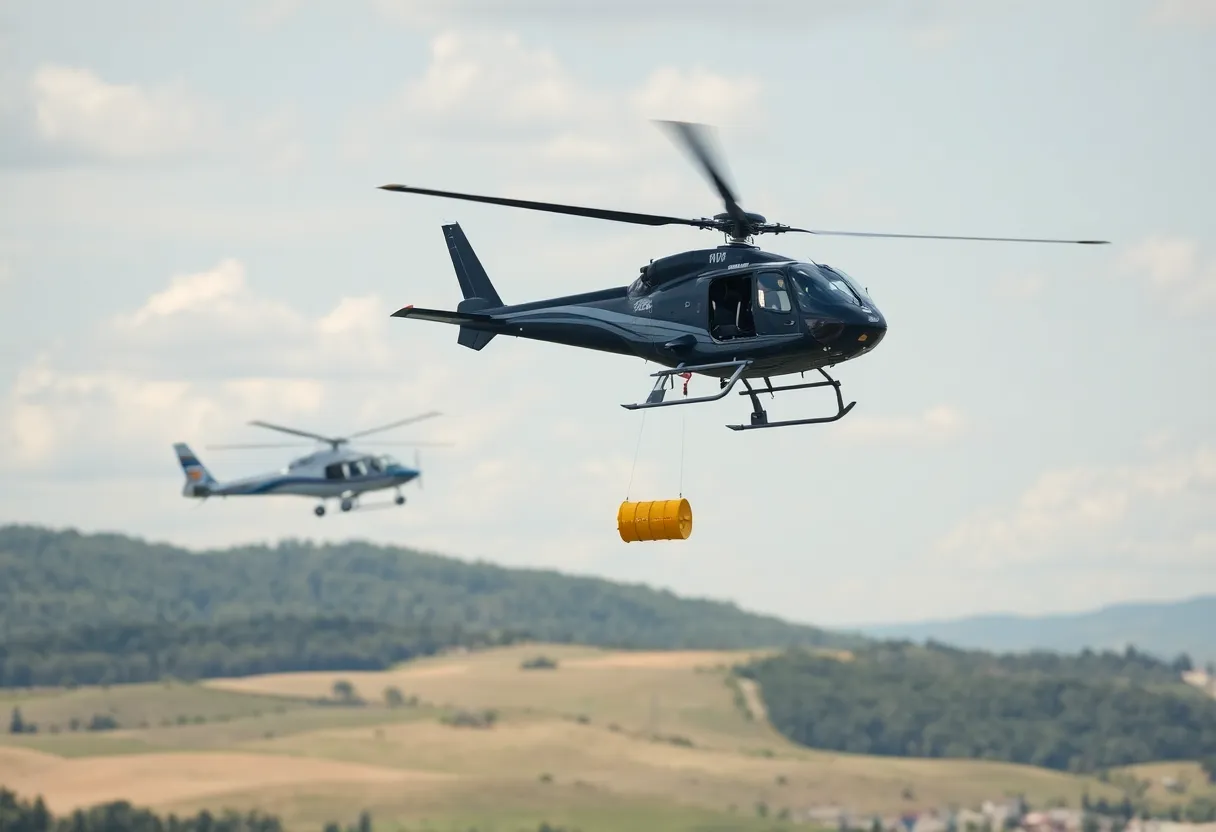News Summary
Chattanooga and Dalton are set to witness a unique operation this Monday as a low-flying helicopter and airplane will distribute oral rabies vaccination baits. Approximately 800,000 baits will be released to safeguard local wildlife and community members. Although delays occurred due to Hurricane Helene, this initiative is crucial for preventing rabies spread, primarily transmitted by wildlife like raccoons. Residents are encouraged to report any found baits, as keeping pets safe is a priority. This vaccination effort is essential for ensuring a healthier environment for everyone in the region.
Chattanooga and Dalton Get Ready for Rabies Vaccine Air Drop!
Starting this coming Monday, the skies over Chattanooga and Dalton are going to witness something unusual—a low-flying helicopter and airplane operation, all for a good cause! What’s the buzz, you ask? It’s all about the annual oral rabies vaccination baiting program. This vital operation is set to take place in the region and aims to keep local wildlife and community members safe.
Delayed but Not Deterred!
As many in the area may know, this year’s operation hit a bit of a snag due to Hurricane Helene. It’s usually a fall affair, but now it’s finally time to get things rolling! Over the next week or two, around 800,000 oral vaccine baits will be distributed throughout parts of North Georgia and Southeast Tennessee.
Keeping Pets Safe and Sound
Now, one concern many pet owners have is—are these baits safe? Absolutely! The vaccine baits have proven safe for various animal species, including your furry friends, dogs and cats. However, the USDA advises residents to simply leave any bait they come across alone. If it happens to be in a tricky spot, you can carefully move it using a paper towel or garden glove, as long as you’re not in a brushy or wooded area.
The Rabies Reality
You’re probably wondering, “Why all the fuss about rabies?” Well, it turns out rabies is primarily transmitted by wildlife in the U.S., and raccoons are notably the primary carriers in the Eastern U.S. For context, the CDC indicates that approximately 90% of reported rabies cases here come from wildlife. This is why public health efforts like this vaccination baiting are critical for the safety of both people and pets.
Getting the Word Out
Residents across the counties involved—spanning parts of Southeast Tennessee and Northwest Georgia—are encouraged to keep an eye out for these baits and report any findings. If you spot a bait, don’t hesitate to call the toll-free number 1-877-722-6725 to let the appropriate authorities know what’s up. Your quick report helps keep the program effective!
What to Watch For
While the bait isn’t harmful to pets, consuming it in large amounts might upset their stomachs. If your pet happens to grab one, it’s best not to take it from them directly, as it could provoke a bite. Instead, gently encourage them to drop it and keep them distracted while you safely dispose of the bait.
The Community Connection
So, why is all this important? Vaccinating wildlife against rabies helps ensure the safety of everyone—people, pets, and livestock alike. As we gear up for this operation, let’s work together as a community to embrace these efforts. It’s not just about the vaccines; it’s about ensuring a healthier, safer environment for everyone in Chattanooga and Dalton.
Keep those eyes peeled and stay safe, folks! With a little community cooperation, we can keep the rabies scare at bay.
Deeper Dive: News & Info About This Topic
HERE Resources
Additional Resources
- NewsChannel 9: USDA Prepares to Deliver Rabies Vaccines
- Local 3 News: Low-Cost Rabies Vaccination Clinics
- Local 3 News: USDA to Begin Rabies Bait Drops
- Chattanooga Pulse: Tennessee to Air Drop Rabies Vaccines
- Wikipedia: Rabies







